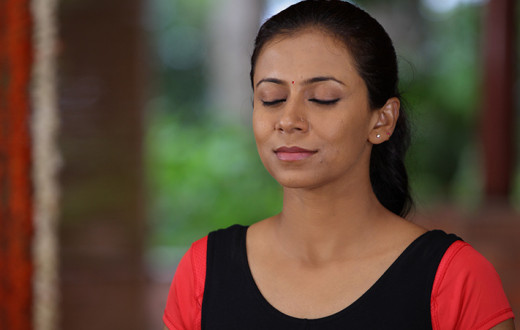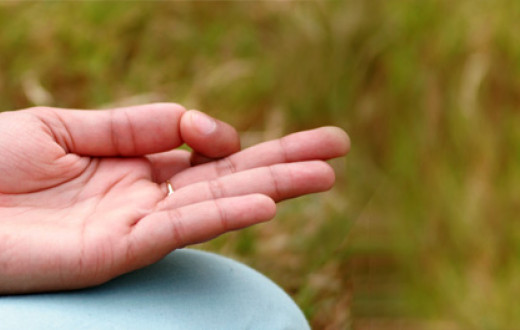Contd. from knowledge sheet 50
Even in tapas, there are three types: Sāttvic tapas, Rājasic tapas, and Tāmasic tapas. Tāmasic tapas is the demonic tapas wherein one tortures oneself. Certain people punish themselves. They cannot torture others, so they torture themselves. They put nails all over their body and walk on fire.
There are other types of people who do practices with the desire of achieving something. There is always a motive behind their action. Even if they are doing service (seva), behind the service, there is a motive, “I should be getting something in return.” This is Rājasic tapas - the tapas one does to show off. When they do anything, they tell the whole world about it. “Oh! I am fasting for some days. I am meditating, I am being very good. Be like me. I sing better, I can sing and dance. I do great service”. The tapas done with ‘I’ness is Rājasic tapas.
Sāttvic tapas is that which you do not even feel that you are doing. The world today is a phenomenon and we are just a part of the phenomenon. Where do we exist? In the lake, there are so many tiny waves but if each wave thinks, “I exist as a wave”, it is being foolish. So many waves rise and they all subside a little later.
At a particular time in the ocean of consciousness, there is a wave, a current. One such wave calls itself Jyoti, another wave calls itself Nisha, Bridgette. In a few days, all these waves will disappear and new waves will arise. Do you see that? Knowing this, with awareness, when one goes through this fire of life, that is Sāttvic tapas.

Even in Sāttvic tapas, there are three divisions. The bodily tapas, the tapas of the speech, and the tapas of the mind. What are these?
What is bodily tapas? Keeping physical hygiene, keeping lethargy away, having a say over the senses. If you do not want to watch television, you do not. If you do not want to eat, you just don’t eat even if the food served is very delicious. Keeping personal hygiene, abstinence, and having control over the senses is called physical tapas.
Vāngmaya Tapas or tapas of speech is saying things that do not distress people, words that do not ruffle the calm, quiet mind.
It is also speaking the truth but speaking it pleasantly so that people are not hurt or insulted. There is a way to tell the truth. All those who speak the truth very harshly, often say, “I am telling the truth. Why should I go around talking in circles?” There is no need to go around in circles. It is the truth, all right, but there can be a pleasant way to express it.
Just notice that when you talk to people, do they go away from you relieved or grieved or with greed, anger, and frustration? Words that are sweet, true, and bring somebody relief or value are called Priyamsatyamhitam.
Often, when you keep your lips tight, you are a better person. You are more charming. You are a more wanted person. The moment you open your mouth, you have no control over what you say. Words simply come shooting out of your mouth. You do not even look into what the effects of those words are. Your words can become either a flower or a knife.
Often in Sanskrit, there is an example given. If you want to call someone who is blind, you can say, “Oh blind man, come here." This is one way you can address him. It is not untrue that you are calling him blind, but by calling someone blind, you are hurting him. So, Sanskrit has a beautiful word for him - Prajñāchakshu. It means that his consciousness is his eyes. You can’t call a blind man blind, for he sees through his third eye/the intuitive eye or consciousness. Such wise and non-hurtful words are Vāngmaya Tapas.
Vāngmaya Tapas is important. Why? Because as you grow on this path, your words become more and more powerful. If you call someone a fool, even if he/she is not a fool, he/she will become one. You call someone stupid, there is a 99 percent possibility that he/she will become stupid. Your words have the power to bless and the power to curse. There are all possibilities. Vāngmaya Tapas purifies you. The power rebounds to you.
<< Purification through Five Types of Fire
The Body is Inside the Mind >>
(This is part of a series of knowledge sheets based on Gurudev Sri Sri Ravi Shankar's commentaries on Patanjali Yoga Sutras.)































